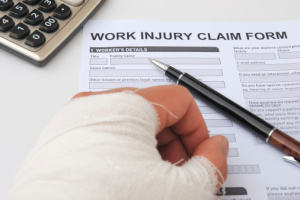- ATV accidents
- Brain Injuries
- Bus Accident
- Car Accidents
- Construction Accident
- Distracted Driving
- Drugged Driving Accident
- DUI
- Firm News
- Mass Tort
- Medical Malpractice
- Motorcycle Accidents
- Pedestrian Accidents
- Personal Injury
- Product Liability
- Safety
- Social Security Disability
- Truck Accidents
- Vehicle Accidents
- Workers Compensation
- Workplace Injuries

Kentucky employers will be subject to more stringent guidelines when it comes to reporting workplace fatalities starting Jan. 1, according to a rule change recently approved by the federal Occupational Safety and Health Administration.
Under the new regulation, companies will have eight hours to notify OSHA of a workplace fatality. Employers must also notify OSHA if an employee is hospitalized for an on-the-job injury, amputation or loss of an eye within 24 hours of the incident. The reason for the more stringent reporting requirements is that serious on-the-job injuries are often a red flag of an unsafe workplace that puts numerous workers at risk of injury.
Currently, employers are only required to notify OSHA when three or more workers are seriously injured or hospitalized or when there is a workplace death. The rules were changed to encourage employers to be more vigilant about workplace safety and identifying hazardous conditions in the workplace.
Preliminary data recently released by the U.S. Bureau of Labor Statistics indicates that 4,405 workers died on the job in 2013. There were 10 work-related deaths in the Lexington area in 2013, according to the bureau.
Far too many employers fail to take preventive measures that could save lives or prevent serious injuries.
According to OSHA, the top 10 most frequently violated standards in 2013 involved:
- Failing to provide proper protection from falls.
- Failing to warn employees of classified hazards on the work site, such as chemicals.
- Inadequate protection when using scaffolding.
- Not taking steps to reduce respiratory hazards on site or failure to provide respirators to employees.
- Poor electrical or wiring methods.
- Improperly maintained or noncompliant powered industrial trucks.
- Unsafe ladders.
- Violations involving lockout/tagout (hazardous energy control) in equipment servicing and maintenance.
- Poor electrical systems design.
- Failure to provide proper machine guards.
Although some jobs – such as mining or construction – are inherently dangerous, it is important to realize that workplace accidents can happen in any environment. Whether the workplace is an office skyscraper or a massive warehouse, employers are bound by law to take preventive action to keep their workplaces safe.
Many states, including Kentucky, have workers’ compensation laws in place that require most employers to provide benefits to employees who have been injured on the job or suffered an occupational illness due to toxic exposure at work. Under the law, an employee who accepts workers’ comp benefits is barred from suing his or her employer for other damages unless the employer does not carry workers’ compensation insurance.
Under the Kentucky Workers’ Compensation Act, an employer must pay for an injured worker’s medical expenses, a portion of lost wages and provide disability income benefits. In addition, workers may be entitled to vocational rehabilitation if their injury causes them to need retraining because they cannot return to work in the same capacity that they did before the injury occurred.
Many work accidents involve negligence on the part of a third party such a subcontractor. It may be possible to make a claim against a third party if their negligence caused the accident. For example, the manufacturer of a power tool may be held liable for injuries to a worker if the defective product caused a job-related injury. A driver may be subject to a third-party liability claim if he or she causes an accident that injures someone who is on the road for work.
Although employers cannot be sued for pain and suffering in Kentucky, in cases where a third party is involved, it can be worthwhile for injured employees to seek the advice of a workers’ compensation attorney who is capable of rooting out all possible sources of compensation to assist with their recovery.

